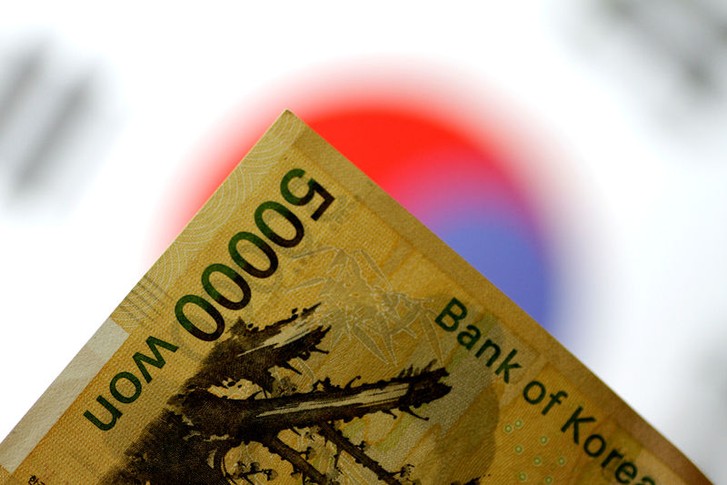By Cynthia Kim and shinhyung lee
SEOUL (Reuters) – South Korea will consider measures to boost capital outflows if the won
While operations to curb the won’s volatility will continue, the nation’s foreign exchange authorities may also look into ways to spur investment abroad should the local currency appreciate on a consistent basis, the people told Reuters.
The government “can consider measures to spur FX outflows,” one of the people said.
A spokesperson for the finance ministry declined to comment on the matter.
Rising domestic interest rates, strong exports and heightened U.S. scrutiny on South Korea’s foreign exchange regime have made it harder for Asia’s fourth largest economy to tame the won’s gains.
Measures that encourage capital out of the country could help policymakers remove some of the upward pressure on the currency without needing to use direct intervention in the foreign exchange market, a sticking point in Seoul’s relations with the Washington.
The U.S. Treasury Department kept South Korea on a “monitoring list” of countries in its report on foreign exchange policies of major trading partners in October last year, along with China, Japan and Germany.
A surge in the won makes goods produced in South Korea more expensive for global consumers, eroding local manufacturers’ competitiveness.
The won traded at a three-year high of 1,066 per dollar on Wednesday, having risen 13 percent in 2017, its biggest annual gain in 13 years.
The sources did not provide details on what such measures might entail and declined to elaborate when asked if the steps could include tax breaks similar to those announced in 2015.
Back then, South Korea offered up to 10 years in tax exemptions on investment gains from funds that put more than 60 percent of assets into overseas stocks. The scheme took effect in February 2016 and expired in December.
The nation’s current account has been in surplus for 68 straight months through to October last year, data from the Bank of Korea shows.
(Reporting by Cynthia Kim, Shin-hyung Lee; Additional reporting by Yena Park; Editing by Sam Holmes)



















